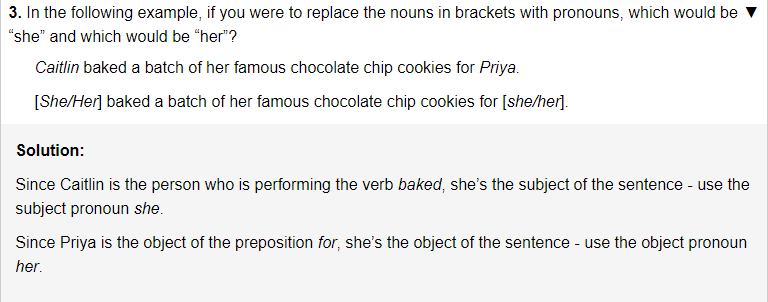Noun and Pronoun Agreement
All the properties of nouns and pronouns discussed in this lesson will help you maintain consistency between nouns and pronouns in your English test. This match is called a pronoun match. Pronoun agreement means that the pronoun must agree with the noun it replaces. This may sound obvious, but many people don't write with correct pronoun matching, so the wrong answer is very common in our daily life, so it's normal and correct.
Number
To match the number of nouns and pronouns, you must match singular pronouns with singular nouns and plural with plural nouns. It is grammatically incorrect to use the plural neuter gender pronoun their in a singular noun. This is an important difference between standard written English and the English we normally use when we speak. 
Case: Subject vs. Object
It is also important for nouns and pronouns to agree in case. Here’s an example question: 